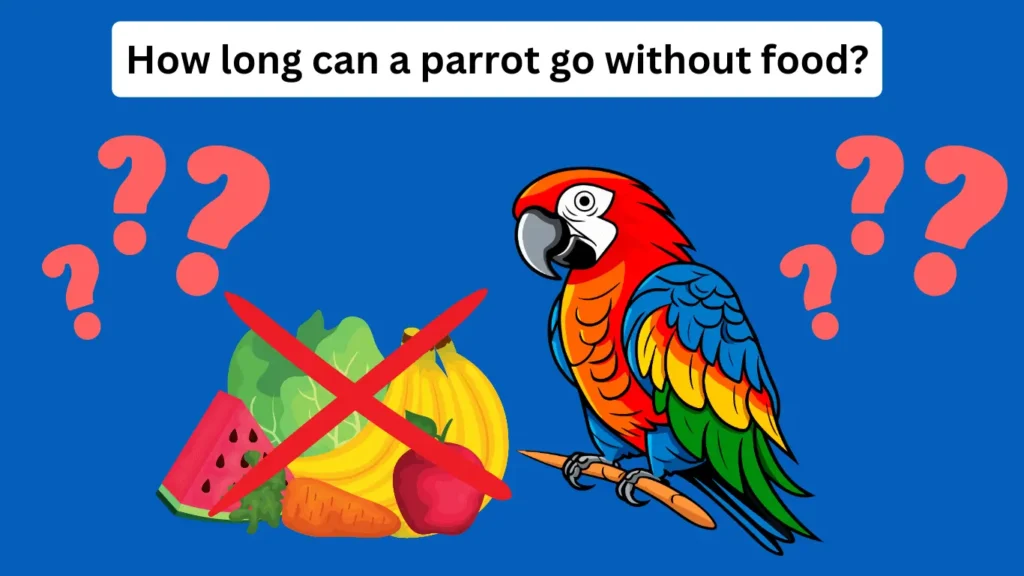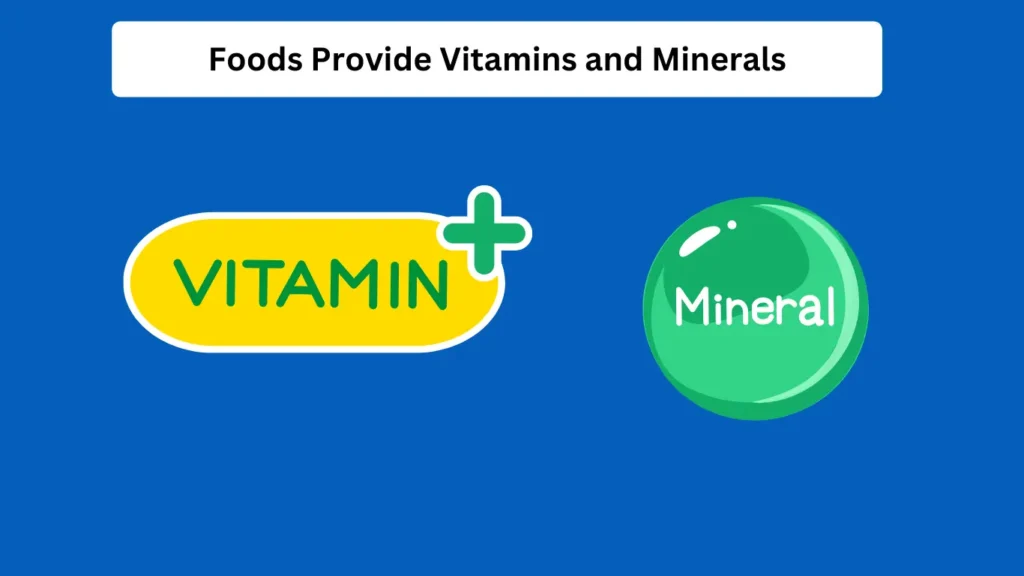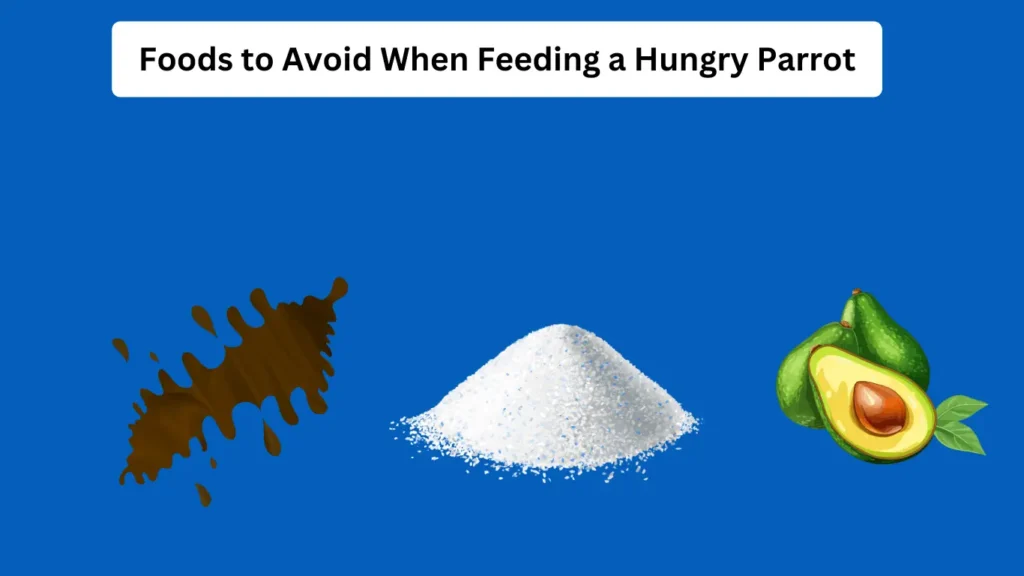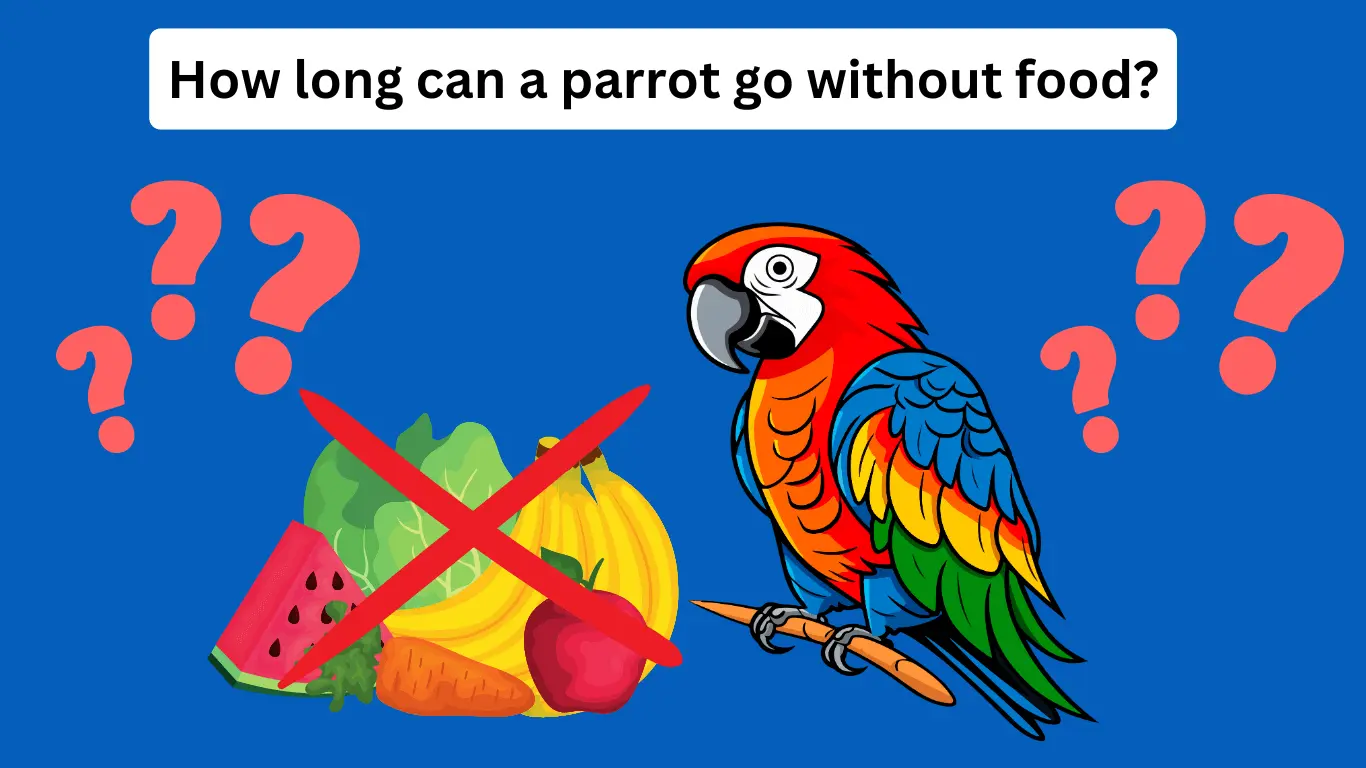Discover how long can a parrot go without food and what you need to know to keep your feathered friend healthy. Explore essential care tips for parrot owners! Parrots are beautiful pets. It depends on the health and environment of your birds. Large parrots such as macaws can tolerate short feeding periods, meaning that after 48 hours they start to face health problems and need different types of food. It affects because one has to eat various types of food, and eats different foods, which affects its health, so on average, a parrot can survive for 24 to 48 hours without drinking water without eating food.

Parrots eating or not eating depends affects their metabolism because metabolism plays an important role in their life. Every Parrot Feeding depends on its age, body size, health conditions, and surrounding waters.
The Importance of Water in Parrots
Birds live without water for a limited time because water is very essential in life. During our work, we identified that for parrots, dehydration can be much more dangerous than starvation. A parrot can begin to develop severe diseases when it does not have water for 24 hours, and in some cases, dehydration may cause death within two days.
The Importance of Foods in Parrots
As discussed below, food is very important to the health of parrots. Here are some key reasons why proper nutrition is so important:
1. Physical Health
Nutrition: Balances prevent obesity which leads to diseases, the right nutrients build up organs muscles, and all over bodily systems.
Immune System: Parrots feed on quality foods that provide strong immunity hence reducing disease incidences.
2. Mental Well-Being
Stimulation: Eating, or foraging as it might be termed is perfectly natural and offers a certain level of mental challenge. It is efficient to switch between and eat different foods, so as not to get bored and improve mental state.
Behavioral Health: A happy tummy leads to a happy parrot who wants to interact and is much less likely to snap/fight or pluck feathers.
3. Dietary Needs
Species-Specific Diets: In fact, individual parrot species have particular needs when it comes to diet. For instance, some require more seed products, others need more fruits and vegetables in their diets.
Vitamins and Minerals: Vitamin A helps with skin, calcium with fibers, and omega fatty acids with feathers and bones.

4. Longevity
Quality of Life: The idea is quite simple: healthy food makes parrots live longer and this, in turn, will make them happy.
5. Bonding
Interaction: Feeding and giving a meal to a parrot can improve the parrot’s friendship with his owner. Feeding means establishing trust or joining the routines to strengthen the relationship between the rabbit and the owner.
6. Reproductive Health
Breeding: Micro-nutrient and macronutrient requirement plays a crucial role in the breeding period and which directly influence the parent stock as well as chicks.
Parrots Breeds Estimated Survive Without Foods or Waters
| African gray Parrot | 72 hours |
| Indian ringneck | 48 hours |
| Senegal parrot | 48 hours |
| Parrotlet | 24 hours |
| Macaw | 72 hours |
| Lovebird | 48 hours |
| Indian ringneck | 48 hours |
| Conure | 48 hours |
| Cockatiel | 24 hours |
| Cockatoo | 48 hours |
| Budgie | 24 hours |
| Amazon parrot | 72 hours |
Factors That Affect Time to Live Without Food
- Age and Health: Parrots that are young or those that are sick are even more susceptible to stress and can decline more rapidly if they don’t eat. It can also make it difficult for older birds to deal with as well.
- Environmental Conditions: If the parrot is in a cold or hot climate, its body temperature will be determined by the food it eats meaning the food it eats will have to increase to balance that needed temperature.
- Activity Level: Pet parrots also go about actively during the day and they will require food during the day as compared to passive parrots. While a sedentary bird may go for a long time without food, it is still not safe to starve them.
8 Signs of A Hungry Parrot
- Vocalization: Loudness, in particular, squawking or begging, is also another clear sign that a bird is hungry.
- Foraging Behavior: Presently, if you find your parrot foraging for food or scrounging its cage it can be an indication that it is starving.
- Nesting or Storing Food: Some parrots may attempt to stash some food, or mimic the act of nesting, when in fact they’re signaling that they’re hungry.
- Aggression or Irritability: A friendly bird may become easily provoked or be more cranky when it is time for it to eat.
- Eating Quickly: If your parrot Gulps down the food the moment the food is presented into his reach or sight then the parrot must be very starved.
- Loss of Interest in Toys: A parrot that is usually playful will get bored by toys when it is hungry it will concentrate only on the food.
- Weight Loss: If ever there would be a loss or a decrease of weight, then an evaluation of the diet as well as the feeding and eating regimen must be done.
- Change in Activity Level: Lack of energy or feeling more tired than usual may mean that your body is demanding food.
Foods to Avoid When Feeding a Hungry Parrot
While preparing food for a hungry parrot one should be very careful which kind of food can harm the pet.

Here’s a list of foods to steer clear of:
- Avocado: Has constituents known as persin toxic to birds.
- Chocolate: Contains theobromine which is poisonous to parrots.
- Caffeine: Coffee, tea, and some sodas contain a chemical known as caffeine, which is toxic to birds.
- Onions and Garlic: These can harm the red blood cells as well as cause anemia.
- Salt: High levels of salt can cause many health problems such as lack of water in the body and kidney diseases.
- Alcohol: This substance is particularly dangerous to birds, and even very small quantities may be lethal.
- Fruit Seeds and Pits: Some of them contain cyanogenic compounds, which are dangerous in large doses.
- Processed Foods: It is also very concentrated with sugar, salt, and preservatives which are unhealthy for parrots.
- Dairy Products: Lactose is not easily digestible by parrots so dairy is not recommended to be given to them.
- Certain Nuts: WARNING: The indigenous form of cashew nut is dangerous, especially for parrots when consumed in its raw form or rather, unroasted form.
Make sure your parrot has a balanced diet of green leaves, fruits and vegetables, and of course fresh pelleted food!
The 6 Emergency Feeding Tips for Your Lovely Parrots
f you find yourself in a situation where your parrot needs emergency feeding, here are some tips to ensure they receive the necessary nutrition:
- Fresh Water: Make sure the parrot always has fresh and clean water to drink. It would do well to stay hydrated given that they aren’t having their meals all through.
- Cooked Grains: For breakfasts provide mature, cooked cereal that embraces the softer grains such as; quinoa, brown rice, or oatmeal. These are easy to chew and provide energy These include;
- Mashed Fruits and Vegetables: Bash bananas, sweet potatoes, or carrots so that the meat is tender and small for your parrot to chew.
- Nut Butter: A spoonful or two of unsweetened nut butter (like almond or peanut butter) may also give you healthy fats and calories.
Seeds and Nuts: Provide a combination of seeds and nuts because they are concentrated energy sources; any parrot would fancy it. - Avian Formulas: Commercially prepared hand-feeding formula for birds can be used if available if not use of poultry starter mash can be made. They are meant to be calorie-controlled and balanced.
- Vegetable Puree: Mash the vegetables to a puree if they are cooked, and dilute them with a bit of water to allow the use of a syringe or spoon.
Conclusion
It is also helpful for every bird owner to know how long this parrot can survive without feeding. Normally, parrots can go up to 24 to 48 hours without ingesting food and water but depending on the health of the bird, the age, or the type of parrot. In my relationship with my parrot, I had one time had to leave one day for another and I thought it would be for a short time only.
For Peto, I made sure that she had enough fresh food and water but the question was, would eat them while I was not around? Fortunately, however, I ensured that there was a feeding regime established and all the foods that Peto loved could easily be reached so this was not much of an issue to me.
FAQs About How Long Can a Parrot Go Without Food?
How long can a bird survive without food or water?
Birds survive without food and water for 24 to 48 hours on depending several conditions age, birds health, and other factors.
How long can a baby bird survive without food?
It is very important because most of the baby birds can go a day or two without food, approximately 24 hours to 48 hours. But on average, it can take from 21 to 24 hours though this can be dictated by the kind of bird, its age, and general health.
How long can a sparrow go without food?
Sparrows live without food for almost 1 to 2 days.
How long can a crow survive without food or water?
It is a fact however that crows would be able to go up to 3 to 5 days without the need to have food. However, they differ depending on the health conditions, age, and limitations of environments encountered in those regions.

Abubakr is a passionate parrot enthusiast based in Pakistan. He shares his life with his vibrant parrot, Peto, and is dedicated to understanding parrot nutrition, behavior, and training. Through his experiences with Peto, Abubakr aims to gain a deeper insight into the needs and personalities of parrots and to share his knowledge with fellow parrot lovers. With a focus on the nutrition of conures, Abubakr is excited to connect with like-minded individuals and learn from their experiences.
